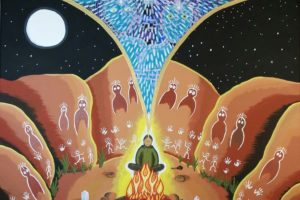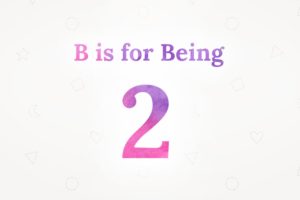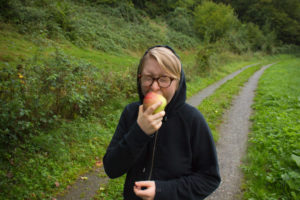The core belief that’s behind all of our self-negativity.
Beliefs are powerful. They control our interpretations and reactions to ourselves and the world we experience around us, but often we’re unaware of which beliefs are running in the background of our lives.
Most of the time beliefs don’t cause us too much trouble, but in the case of “I’m not good enough and I need to be better,” this belief has the ability to keep us fighting our own natural drive for self-expression and cause us quite a bit of unhappiness in the long run.
In this episode I outline why beliefs are so powerful, where this troublesome belief of “I’m not good enough,” comes from, and how we can use our own emotional reactions as tools for uncovering the beliefs we hold – ultimately empowering us to choose to live in accordance with this core negative belief or not.
Show Highlights and Takeaways
Beliefs 101
- A belief is like a self-made lens. We use it to view ourselves and all of our experiences through.
- The lenses we look through are formed from a combination of:
- our unique view of the world, and…
- the beliefs we’ve previously formed from our past experiences.
- The lenses we look through form our subjective experience of reality.
Awareness of Our Beliefs
- If our beliefs determine the way in which we interpret our experiences, then there is a tremendous freedom of choice that comes with being aware of the beliefs we hold.
- When we are aware of a beliefs we hold:
- We have the choice to interpret experiences through our subjective lenses, or we can…
- Choose to put the lens down and experience via our direct perception of an experience (using our five senses.)
- Negative self-beliefs cause us to interpret ourselves and our experiences through a lens of negativity.
Taking a Closer Look at the Core Negative Belief
- “I’m not good enough and I need to be better,” is saying that we are inadequate as we are, and that we need to change ourselves in someway in order to increase our value.
- This belief is at the base of all our other negative self-beliefs: “I’m not smart enough to go to uni, I need to study harder. I’m not attractive enough for people to like me, I need to be more stylish.”
Where Does This Belief Come From?
- This core negative belief usually forms in early childhood between the ages of 0-5. These are the most formative years of our lives.
- As children we see our parents like gods. They are all-knowing entities who tower above us, and are the providers of the love and protection we need for our survival.
- When we experience traumatic events as children we almost always blame ourselves for the negative reactions our parents directed towards us. Simply because we have no concept that our parents could ever be wrong, or have any understanding of the intentions behind their behaviour. We just assume it was our fault they got angry.
- We adapt to our childhood environment in a way to keep love and acceptance flowing, and stop painful experiences from occurring, i.e. being yelled at, smacked, criticised, etc. by our parents.
Self-criticism, Doubt and Repression Are Forms of Protection
- We naturally don’t want to experience pain. So if an experience in our past has lead to pain, we will change our behaviour so we don’t experience that same pain again.
- Depending on the severity of the pain, we employ a number of techniques, often unconsciously, in order to keep ourselves ‘safe’ from potentially traumatic situations.
- Self-criticism, doubt and repression are some of the most common ways we attempt to control our experiences and keep ourselves safe.
- Self-criticism – We criticise ourselves in anticipation that someone else is going to criticise us in someway. By criticising ourselves first “I’m dumb, I’m clumsy, I’m skinny, I’m weird,” we minimise the pain we would potentially suffer if someone criticised us without us expecting it.
- Self-doubt usually arises when our inner-drives, (curiosity, learning, creativity, etc.) have been painfully criticised or questioned by someone we deeply trust or respect. Once this has occurred we doubt our abilities as it was originally so painful to feel that were capable of something, and then be told that we were not.
- Self-repression is closely related to self-doubt. It’s safer not to do anything than to do something. If I do something there’s a high chance I’m going to do it wrong. And if I do it wrong I will be judged, criticised, yelled at shamed.
- When we criticise, doubt and repress ourselves we may feel temporarily safer as we don’t feel vulnerable to unpredictable pain. But the longer this goes on the more our well-being suffers until we either suffer a mental breakdown, or live the rest of our lives in a constantly repressed state.
Techniques for Becoming Aware of Our Negative Beliefs
- When you have a strong emotional reaction to an experience write down what happened.
- Start by writing down the events of the experience – “I was standing in the kitchen and I heard a door slam.”
- And then, write down how you felt about the events – “I felt really angry that someone slammed a door.”
- You can dive deeper at any point by asking, why?, “Why did I feel so angry about the door slamming?”
- Then write down your answer.
- This process will uncover our underlying beliefs and give us the opportunity to take another look at our beliefs and see if they are still valid or are in need of an update.








